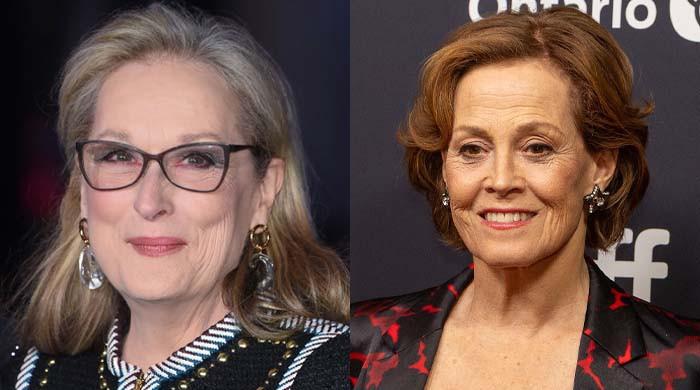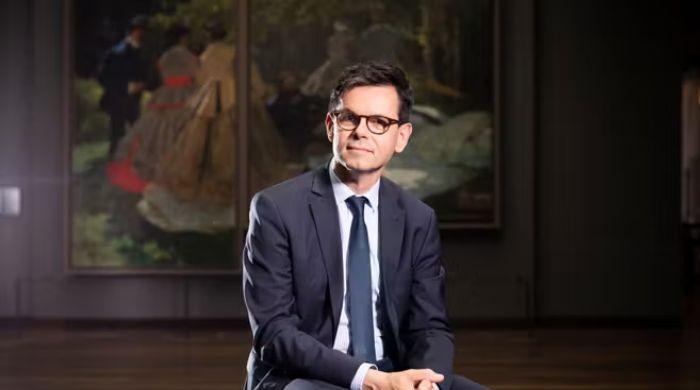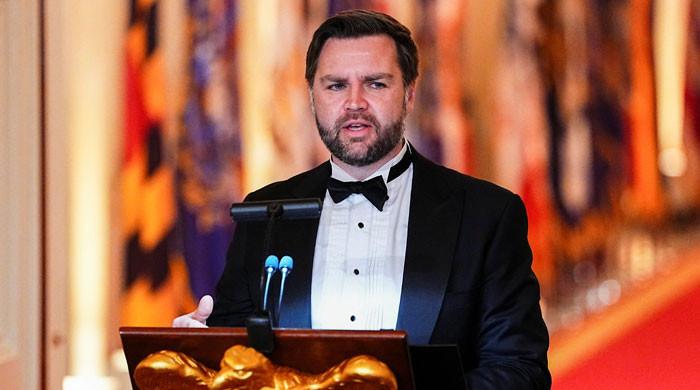Entertainment
Meryl Streep, Sigourney Weaver to share screen for the first time ever

Meryl Streep and Sigourney Weaver are all set to co-star in Useful Idiots.
The actresses will join forces for director Joseph Cedar’s upcoming thriller, which is based on a script he wrote with 60 Minutes producer Shachar Bar-On.
Streep will portray the role of a veteran New York property market journalist named Diane Castle, as she “covers the New York luxury property market, disillusioned with writing puff pieces about the wealthy elite, and feeling regretful that she may not have lived up to her potential”.
According to Variety: “When a record-breaking sale of a new penthouse hits her desk, Diane’s questions about the buyer’s identity lead to what could be the story of a lifetime… [Add in] a mysterious oligarch, whose influence stretches across Manhattan and beyond – protected by a network of fixers, enablers and a brilliant young strategist. Out of her depth, Diane digs deeper into the investigation, her determination to uncover the truth revealing a web of corruption and danger at the highest levels, ensnaring Diane, her family, and all those around her.”
Fifth Season will finance and produce with Closer Media’s Zhang Xin and Jonathan King, Academy Award-winner Bruce Cohen and William Horberg.
Graham Taylor, Christopher Slager, and Dan Guando will executive produce for Fifth Season.
This will mark the first time that Meryl Streep and Sigourney Weaver will be sharing the screen together.
Entertainment
France names Christophe Leribault to lead crisis-hit Louvre after jewel heist

The French government has announced the appointment of Christophe Leribault, president of Versailles, as the new director of the Louvre Museum.
The 62-year-old replaced Laurence des Cars after she resigned amid mounting crises.
Leribault took over the world’s most visited museum at a time when it had been hit by multiple crises following an audacious jewel heist in October, exposing glaring security vulnerabilities.
Thieves dramatically stole the crown jewels valued at $102 million within eight minutes.
Following the heist, a cascade of problems emerged. Earlier, staff went on strike due to worsening working conditions and wage problems, due to which the museum had to shut for days.
After that, a water leakage occurred, which damaged book collections. Additionally, a prosecutor found a ticket-fraud scheme that allegedly siphoned more than €10 million over a decade.
With the repeated structural issues, one of the galleries of the museum has been closed.
Leribault has extensive institutional knowledge. Previously, he served as a deputy director of the Louvre’s graphic arts department from 2006 to 2012 and has led the Musée d’Orsay, the Petit Palais, and the Musée National Eugène Delacroix.
During his time at Versailles, he tackled similar challenges as the Louvre, including vast collections, ageing buildings, and central cultural significance.
Entertainment
Trump still prefers diplomatic solution with Iran: Vance

- Trump has been clear Iran can’t have nuclear weapon, says Vance.
- US, Iran will hold third round of talks in Geneva on Thursday.
- Iran insists its nuclear programme is for civilian purposes.
US Vice President JD Vance said on Wednesday that President Donald Trump still preferred a diplomatic solution with Iran and that he hoped Iranians took that seriously in their negotiations on Thursday.
Vance told Fox News’ “America’s Newsroom” programme that Trump has been clear Iran can’t have a nuclear weapon. He said that Trump wants to achieve that goal diplomatically, but has other tools at his disposal.
The US and Iranian delegations will hold a third round of talks over Tehran’s nuclear programme in Geneva on Thursday.
His comments came as the United States announced fresh sanctions targeting Iran, pressing on with what Washington calls its “maximum pressure” campaign.
As US forces mass in the Middle East, Trump claimed in his speech to Congress on Tuesday that Iran was seeking to develop missiles that can strike the United States.
Trump also accused Tehran of having “sinister nuclear ambitions” and working to rebuild a nuclear programme that was targeted by US strikes last year.
Vance told Fox News that while Trump was going to try to “accomplish it diplomatically,” the US president also had the “right” to use military action.
“The president has a number of other tools at his disposal to ensure this doesn’t happen. He’s shown a willingness to use them and I hope the Iranians take it seriously in the negotiations tomorrow because that’s certainly what the president prefers.”
Iran’s President Masoud Pezeshkian earlier struck an upbeat tone, saying there was a “favorable outlook” for the negotiations as his Foreign Minister Abbas Araghchi and his team left for Switzerland.
Iran also rejected Trump’s claims about its missile programme as “big lies.”
But while Trump said he preferred a diplomatic solution, he also set out what appeared to be the justifications for possible military action in the first State of the Union address of his second term.
It was the same forum in which then-president George W Bush laid out the case for the invasion of Iraq in 2003.
Trump claimed in his address that Tehran had “already developed missiles that can threaten Europe and our bases overseas, and they’re working to build missiles that will soon reach the United States of America”.
Iran insists its nuclear programme is for civilian purposes.
Entertainment
Drone flying banned across Punjab amid ‘risks to public safety’

The provincial administration in Punjab has imposed an immediate and complete ban on outdoor drone flying across the province, citing risks to public safety and security.
In a notification issued on Wednesday, the Punjab Home Department said that unregulated use of drones posed potential risks to the maintenance of public order, adding that such activities may cause obstruction to official duties, create law and order concerns, and disturb the atmosphere of the province.
“It is essential to ensure security of the people and installations/buildings against any potential threat or untoward activity, in the larger interest of public safety, security, peace and tranquility and to avoid any untoward incident” read the notification.
The department stated that there were “sufficient grounds” to invoke Section 144 of the Code of Criminal Procedure, 1898, to impose a ban on outdoor drone flying to prevent disturbance of public peace, safety of lives and property across Punjab.
“This ban shall not apply on use of small drones for coverage of indoor activities such as in halls or marquees,” the provincial administration added.
The Punjab Home Department, however, said that the safe usage of such drones in a limited and confined indoor area (for events/functions) will be the responsibility of the organiser.
Intelligence and law enforcement agencies will be exempt from the ban, set to remain in force for a period of 30 days from the date of issuance or until withdrawn earlier.
-

 Entertainment1 week ago
Entertainment1 week agoQueen Camilla reveals her sister’s connection to Princess Diana
-

 Tech1 week ago
Tech1 week agoRakuten Mobile proposal selected for Jaxa space strategy | Computer Weekly
-

 Politics1 week ago
Politics1 week agoRamadan moon sighted in Saudi Arabia, other Gulf countries
-

 Entertainment1 week ago
Entertainment1 week agoRobert Duvall, known for his roles in "The Godfather" and "Apocalypse Now," dies at 95
-

 Business1 week ago
Business1 week agoTax Saving FD: This Simple Investment Can Help You Earn And Save More
-

 Politics1 week ago
Politics1 week agoTarique Rahman Takes Oath as Bangladesh’s Prime Minister Following Decisive BNP Triumph
-

 Tech1 week ago
Tech1 week agoBusinesses may be caught by government proposals to restrict VPN use | Computer Weekly
-

 Sports1 week ago
Sports1 week agoUsman Tariq backs Babar and Shaheen ahead of do-or-die Namibia clash






